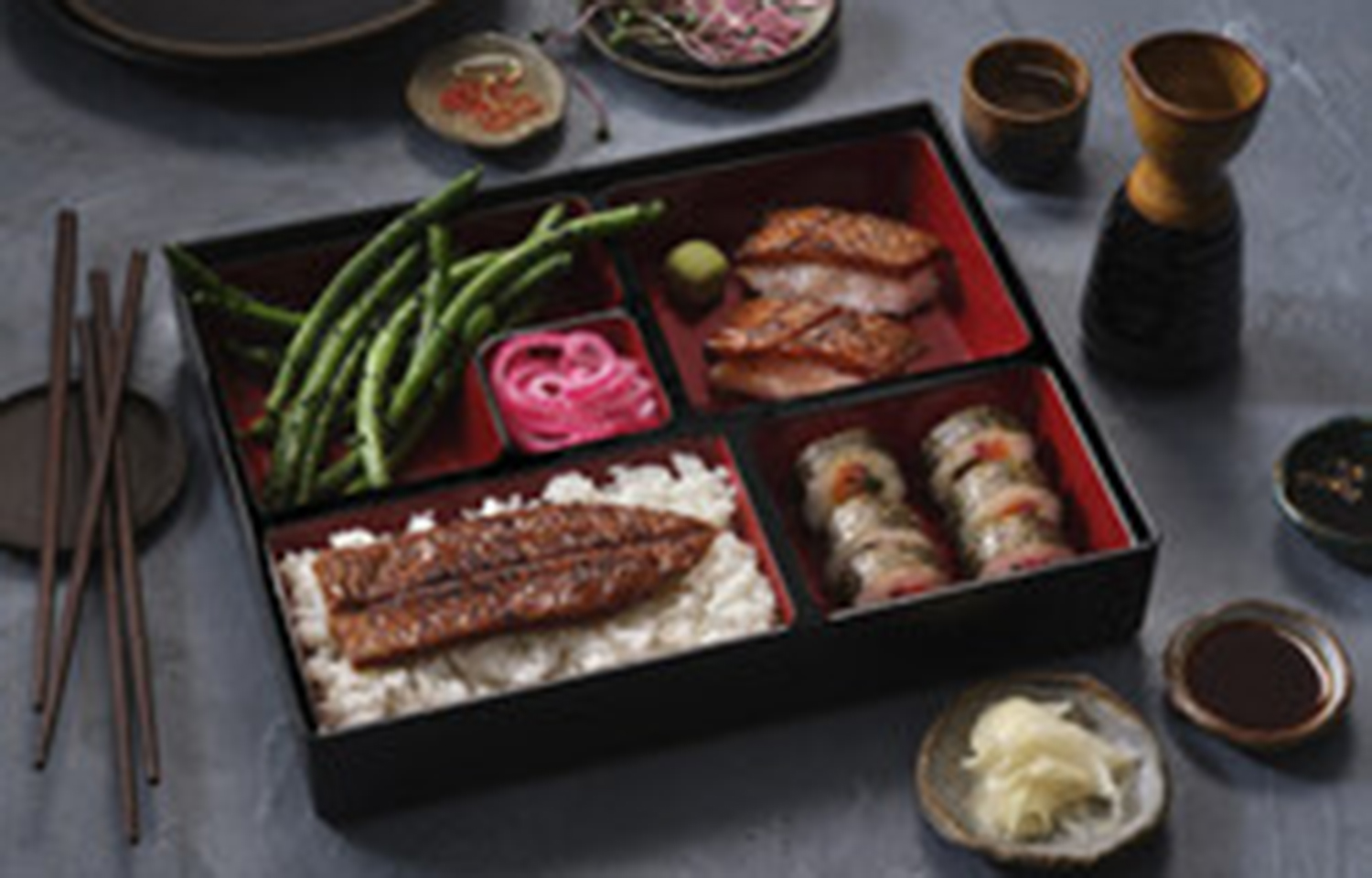SeafoodSource is closely following the plant-based and cell-based seafood alternatives market by compiling a regular round-up of updates from the sector.
-Rehovot, Israel-based seafood analog startup Forsea Foods announced it has unveiled its eel analog (pictured).
The cell-cultivated eel analog is designed to replicate traditional Japanese unagi eel and is made using its organoid technology.
"This milestone marks a major leap in our journey to deliver delicious cultured seafood products," Forsea CEO and Co-Founder Roee Nir said in a release. "Forsea is pioneering the fusion of traditional, high-quality Asian cuisine with groundbreaking technology to create the world's first cultured unagi – one that will provide the consumer with a genuine seafood experience without putting further strain on aquatic life."
Forsea has achieved a proof-of-concept replicating the sensory attributes of eel meat, and is prepped for scale-up, according to Nir. The startup has been working with vegan chef Katsumi Kusumoto to enhance savory texture and flavors replicating real eel meat.
"Unagi is an enduring favorite in Japan," Kusumoto said. "Its timeless appeal, however, is impacted by a growing awareness among the Japanese population of the need to take a more sustainable approach. It's been a thrilling journey to join forces with emerging innovators, and working together to deliver the traditional unagi indulgence with a clear eco-conscience."
Foresea Foods was founded in 2021 with the goal of creating cell-cultured seafood, omitting any real meat in its products. It uses a non-GMO organoid platform. The cultivated eel meat is grown "ex vivo" using a 3D tissue structure, replicating the way real fish grow.
Companies that also invested in the round are the Kitchen FoodTech Hub, PeakBridge VC, Zora Ventures, FoodHack, and Milk and Honey Ventures.
The startup projects its eel analog will be ready for commercial launch in 2025.
- Rehovot, Israel-based cell-cultured company Steakholder Foods has expanded its 3D-printing capabilities to include shrimp analogs.
The technology, which also includes the use of shrimp-flavored ink, is designed to create a 3D-printed shrimp analog that replicates the texture and flavor of actual shrimp. The company is using a DropJet printer that has compelted other types of fish and seafood analog printing.
“By unveiling a second new species of plant-based, 3D-printed seafood this month, we expect to position Steakholder Foods to sell and deliver its first DropJet printer in 2024, offering partners and customers a unique opportunity to benefit from the expanding global seafood market, while making the right kind of impact on the environment,” Stakeholder Foods CEO Arik Kaufman said in a release.
Earlier this month, Steakholder Foods announced the launch of a 3D-printed eel product. The eel analog is made from plant-based ingredients run through a 3D-printing layering and combination process. Steakholder Foods said it plans to incorporate eel cells into future production.
-Oaska, Japan-based food-processing company Nippon Ham is preparing to launch a plant-based tuna sashimi product for the Japanese foodservice sector.
The product is still under development, but Nippon Ham plans to launch the product exclusively to Japan-based restaurants in April, according to Vegcomonist.
“(Alternative meat and fish meat) are difficult fields to take root in Japan, where there are religious taboos and few strict vegetarians, but we would like to strengthen our proposal through eating out and find a support base,'' a Nippon Ham spokesperson told The Shankei Shimbun.
The tuna analog is made from konjac flour, dietary fiber, and yeast, using proprietary processing technologies to replicate the smooth texture of real tuna.
Nippon Ham initially entered Japan’s plant-based market in March 2023 with its first developments, a whitefish analog and a popcorn shrimp analog, which were distributed to businesses beginning in April 2023.
“When it comes to food alternatives, there’s a fear that they wouldn’t taste as good as the real deal – this psychological resistance exists within consumers, we believe. We’re trying to change that,” Nippon Ham Marketing and Promotion Manager Jun Ichikawa said.
Photo courtesy of Foresea Foods







